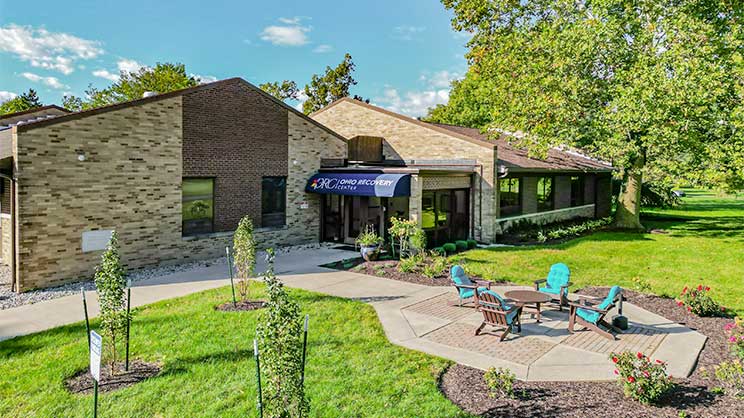Ohio Recovery Center’s Medical Detox Program

Medically Reviewed By: Davis Sugar, M.D.
At ORC, your comfort and safety during withdrawal from drugs or alcohol are given top priority. Our medical and clinical teams provide the care and support you need to complete this first step in treatment.

If you have tried to stop using alcohol or drugs on your own but found it impossible because of depression, anxiety, strong cravings, insomnia, or other physical and mental symptoms, you can benefit from ORC’s medical detox program.
This level of care is often a person’s first step in addiction recovery, especially for people with moderate-to-severe substance use disorders.
You are not weak or weak-willed if you are unable to stop using drugs on your own. Withdrawal symptoms are an indicator of physical dependence, which means that your body has adjusted to accommodate the presence of the substance. ORC’s medical care team can monitor your progress and anticipate your needs during withdrawal to make the process more comfortable.
Withdrawal Management At ORC
Shortly after arriving at ORC, you will receive a full evaluation and biopsychosocial assessment to make sure that all of your care needs are met during your stay with us.
This includes evaluation of any withdrawal symptoms you may be experiencing and checking your vital signs to determine your current health status and detox support needs.
Some of the information you will be asked to provide includes:
- which drugs you have been using
- how often you have been using the drugs
- what physical and mental symptoms you have experienced so far
- whether you have attended a medical detox program before
- whether you have any preexisting physical or mental health conditions
From this information, your medical care team will devise a detox treatment plan to ensure your safety and success during withdrawal.
For your comfort, you will stay in the detox cottage on campus throughout this phase of treatment, providing increased privacy, with all care taking place there.
Your plan will also include recommendations for treatment following detox, in order to address the underlying causes of your substance use and provide the tools for handling stress and other triggers.
Your Detox Plan
Your detox treatment plan will outline your needs during the withdrawal management process, including your anticipated length of stay in the detox cottage, daily services, medications, and tapering schedule, if required.
Length Of Stay
Most people complete our detox program in seven to 10 days. However, your specific detox timeline will depend on your overall health, the severity of your withdrawal symptoms, and other personal factors.
Daily Services
Throughout the withdrawal process, a nurse will visit you to regularly monitor your physical and mental health and help you stay as comfortable as possible.
Detox services at ORC include:
- vitals monitoring
- evaluation for post-acute withdrawal syndrome (PAWS)
- medical treatment, including emergency medical care for any withdrawal-related complications
- medication administration when necessary
Medications
Our treatment team may prescribe medications to ease or eliminate more general withdrawal symptoms, including anti-anxiety medications, anti-nausea medications, or sleep aids.
You also may be prescribed medications that help with specific symptoms pertaining to specific substance use disorders.
For example, benzodiazepines like diazepam (Valium) and lorazepam (Ativan) can help treat withdrawal symptoms associated with alcohol addiction, which can include seizures or other life-threatening symptoms in severe cases. Similarly, a drug called methadone can help ease difficult opioid withdrawal symptoms, such as anxiety, abdominal pain, and persistent flu-like symptoms.
Tapering Schedules
Tapering means slowly reducing the amount of the drug you are taking until you are completely drug-free. In most cases, tapering is safer than quitting drugs “cold turkey,” or suddenly, because it gives your body time to adjust.
If your treatment team recommends this approach for you, they will provide you with a personalized tapering schedule, administering each dose as scheduled.
Next Steps Following Withdrawal
Once your withdrawal symptoms have subsided and you have stabilized, you will transition to the next phase of treatment as laid out in the treatment plan you received upon arriving. This could include transitioning into our inpatient treatment program or continuing your recovery with our aftercare plan.
FAQs About Drug & Alcohol Withdrawal
If you have questions about detox and withdrawal, answers to some of the more frequent questions we get from our clients may provide the information you’re looking for.
What Are Withdrawal Symptoms Like?
Withdrawal symptoms will vary depending on various factors, including the drugs you used, how long you used them, and your overall health.
However, the most common withdrawal symptoms include:
- drug cravings
- sweating
- shaking
- loss of appetite
- nausea and vomiting
- cold, clammy skin
- fatigue
- trouble sleeping
- nightmares
- depression
- anxiety
- irritability
- mood swings
While these symptoms are uncomfortable, they’re usually not life-threatening. However, some people experience rare withdrawal symptoms that can be fatal or lead to serious complications.
Severe withdrawal symptoms include:
- confusion
- hallucinations (seeing, hearing, or feeling things that aren’t there)
- seizures
- loss of consciousness
ORC’s medical detox program provides the medical care, supervision, and support you need to avoid severe symptoms and complications from withdrawal, stay as comfortable as possible, and transition to further treatment.
What Causes Withdrawal Symptoms?
When you regularly use drugs or alcohol, your body may make adjustments in order to keep functioning as normally as possible. It then relies on the substance to serve a particular function. This is called physical dependence.
When you’re physically dependent on a drug and stop using it, your body must relearn how to function without it. This experience can put significant stress on your body, causing withdrawal symptoms.
How Much Does Detox Cost At ORC?
The cost of medical detox at ORC depends on a variety of factors, including the length of your stay, your treatment needs, and your insurance coverage.
To determine your payment options, contact your health insurance provider or ORC directly, at 1-419-904-4158. We accept most major private health insurance plans plus TRICARE military insurance and can help verify your benefits.
What Happens After Detox?
Although medical detox programs treat withdrawal symptoms, they do not treat the psychological, social, or other aspects of addiction. This is why detox is considered just the first step in addiction recovery.
Following detox, you will most likely transition into our inpatient addiction treatment program, where you will identify and learn how to handle cravings and other triggers in healthy ways.
Seek Detox At Ohio Recovery Center Today
To learn more about our evidence-based recovery programs, please contact Ohio Recovery Center.
- National Institute on Drug Abuse - Principles of Effective Treatment https://nida.nih.gov/publications/principles-drug-addiction-treatment-research-based-guide-third-edition/principles-effective-treatment
- National Institute on Drug Abuse - Types of Treatment Programs https://nida.nih.gov/publications/principles-drug-addiction-treatment-research-based-guide-third-edition/drug-addiction-treatment-in-united-states/types-treatment-programs
- United States National Library of Medicine - Drug Use and Addiction https://medlineplus.gov/druguseandaddiction.html

